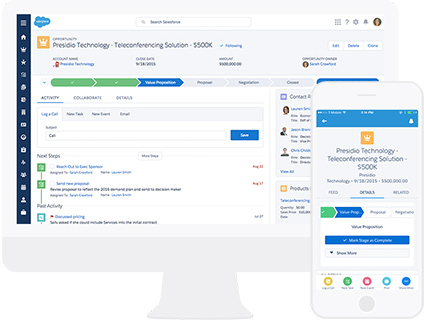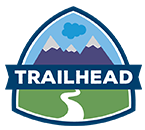Effective Sales Techniques
The Sales Techniques Every Salesperson Needs to Know

Classic and Effective Sales Techniques
Make a Great First Impression.
When first meeting a customer or prospect, give them a steady handshake and look the person in the eye.
Be Specific.
Explain exactly what your business does and get to the point to avoid confusion. Don’t be grandiose.
Be Genuine.
When appropriate, share your own struggles in the industry or what you did over the weekend. For many, small talk helps establish a rapport and trust.
Trust Is Given.
Your contacts are more than just prospects. Treat them as you would a person you meet outside of work – get to know them, build a relationship, and establish trust.
Stay Positive.
Your leads don’t want to hear anything negative about competitors or the industry. Focus instead on your business’ key differentiators and how you can help improve your prospect’s situation.
Address Pain Points.
Tell prospects and customers exactly what you offer and directly relate it to how it can help them.
Be Reliable With Your Word.
Do what you say you will do. If you offer a discount that is no longer active, find a way to honour what you told your prospect. Similarly, if you promise to follow up with a phone call on Monday, make it a priority to call Monday. Staying true to your word helps build trust and lets customers know they can rely on you.
Use Your Network.
Referrals have a much higher conversion rate than cold calls do. Ask people in your network if they can refer you to a prospect who would benefit from your services.
Why Are Classic Sales Techniques Highly Effective?
How Active Listening Helps Salespeople
Pay Attention To Body Language.
Salespeople must focus on their body language and facial expressions so they come off as interested. Focus on using open body language, such as uncrossed arms and legs, and smiling or nodding to acknowledge the other person’s point. You can evaluate the other person’s body language as well. If they seem uncertain, focus on a deeper topic to draw out their attention and interest.
Acknowledge what the person is saying so you can fully understand their needs.
Briefly summarise what they said to show you paid attention. Repeating it out loud can also help you remember what was said after the conversation is over.
Wait to form your response.
Listen to their full thought, then respond to what they say.
The Best Sales Techniques by Sales Role
Inside sales techniques , which focus on phone or online methods instead of in-person meetings.
Direct sales techniques are suited for face-to-face selling outside of a physical store location.
Outbound sales techniques are mainly concerned with contacting leads who have shown an interest in services or are cold-call contacts.
Referral sales techniques are built around leveraging a network that continuously brings in qualified referral leads.
Here are some common sales strategies that work best for each sales technique:
| Sales Strategy | Inside Sales | Outbound Sales | Direct Sales | Referral Sales |
| Phone Calls | X | X | X | |
| Social Selling | X | X | X | |
| X | X | X | ||
| In-Person Meetings | X | X | ||
| Website Content Leads | X | X |
|
These sales strategies can be used together to create a robust ongoing sales plan to meet goals and track performance.
Phone calls
Contacting new leads or ongoing prospects in the sales funnel via phone. Your phone sales techniques must be practiced and polished, and your calls must be tracked to avoid overwhelming a customer.
Using both email marketing campaigns and individual, personalised emails to stay in touch with prospects and contacts.
In-person meetings
Scheduling in-person meetings with new and existing customers who may continue to buy more from your organisation or send you referrals on a regular basis.
Website content leads
Using content marketing, search engine optimisation (SEO), and other digital marketing strategies. With this sales technique, you create informative website content and blog posts that drive leads and generate interest in your products and services.
In addition to which strategies work best with each sales technique, you should also look at which techniques will work best for your specific industry:
| Industry | Inside Sales | Outbound Sales | Direct Sales | Referral Sales |
| Retail | X | X | X | |
| B2B | X | X | X | |
| E-Commerce | X | X | X | |
| B2C | X | X | X | X |
Why Are B2B Sales Techniques Different Than B2C Sales?
Retail and e-commerce overlap in a variety of specific industries, but B2B and B2C remain fairly divided in terms of sales strategy. While many of the same techniques can be used in both types of business, the way they are implemented is different. In many cases, B2B sales take longer to close than B2C because they consist of bigger orders and more complex products, and have a much higher average order amount, according to CBS News.
B2B also focuses more on building relationships than B2C, which is much more likely to survive on occasional purchases than a B2B company. Repeat orders are crucial to B2B success, so relationships with decision makers should be the focus of B2B sales strategy.
Effective Closing Sales Techniques in Any Industry

Don’t Fear The Phone.
Many salespeople live and die by the phone, and for good reason: A phone call or in-person visit may be key to closing for a potential customer who is an auditory or tactile person.If they are slow to respond to emails, try these more personal connection methods instead.
FOMO Still Works.
The fear of missing out, or FOMO, is real. Tell potential customers how others have benefitted from your products or services through data and testimonials.
Speak With Action.
Use actionable questions or statements to move the sale forward. Instead of saying, “When can I bring the contract to you?” try “I will be by your office on Thursday after 2 p.m. I can bring the contract by then, if that works for you. How about 2:30 p.m.?” By specifying what needs to happen next, you cut down on decision fatigue and make the sales process as easy as possible.
Focus On The End Result.
Every customer wants to know the results their order will get them. How does your product or service generate sales, increase productivity, impact their bottom line, or improve their personal life? Show the client what results they’ll get and how it will help them.
Ask Specific Questions.
The Sales Hunter recommends asking for specific examples or further clarification when a potential customer tells you what their pain points are.
Resources

Increase your sales conversions

Developing a growth strategy for SMBs




